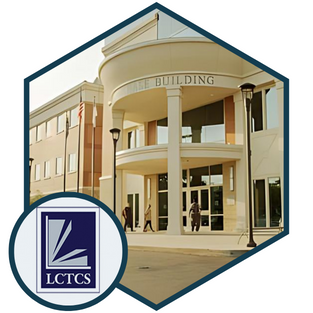LCTCS is a consortium of thirteen public institutions in the state of Louisiana who believe that every student can go anywhere. LCTCS is headquartered in Baton Rouge, Louisiana with campuses across the state. Amanda Jacob holds a Master’s Degree in English Language & Literature and is an English Instructor at Northshore Technical Community College. Dr. Amanda Rosenzweig holds a Ph.D in Curriculum and Institution, is a Biology Professor and Canvas LMS admin at Delgado Community College.
The Challenge
Jacob and Rosenzweig are two faculty members who have been brought together by Canvas LMS. Prior to Canvas LMS implementation, the colleges at Louisiana's Community and Technical College System, or LCTCS, were used to operating independently, without much collaboration across the System. Developing intuitive course design was difficult and instructors in the consortium were creating their coursework in silos.
Not to mention that faculty also found the previous tools to be difficult to pull data from, time-consuming, and students were switching between multiple sources of truth for their coursework. The lift for educators across LCTCS was large and faculty were spending many hours outside of the classroom on lesson planning and grading. In the spring of 2015, LCTCS decided to move to Canvas LMS and campuses would gradually transition to the new system over the course of the upcoming months. Initially, anxieties rose when hearing about a transition to Canvas LMS. Faculty were unsure of how a new LMS would impact instruction.
Key Insights
Following students’ success and struggles via data reports pulled from Canvas LMS allows LCTCS faculty to intervene early to ensure student success
Transitioning to Canvas LMS has allowed for a strong, connected, collaborative community in LCTCS’s faculty.
Utilizing tools like SpeedGrader has granted faculty the ability to upload rubrics and get feedback into students’ hands quickly.
Creating a more inclusive, accessible educational environment in Canvas LMS is both possible and a valuable use of energy, time, and resources to LCTCS faculty and students.
The Solution
To ease anxieties and empower faculty with the knowledge they needed for a smooth transition, LCTCS hosted a “boot camp” leading up to Canvas LMS implementation that focused on onboarding first time users, grade book capabilities, discussion boards, creating quizzes, and specific tool integrations. Now, with Canvas LMS, inter-campus communication is at an all-time high, ushering in a new era of collaboration where each campus’s voice is heard.
Since the whole system uses Canvas LMS, we were able to share resources across institutions...There is not a reason to recreate the wheel when your peers have already discovered a solution that helps students and teachers be successful.
Dr. Amanda Rosenzweig, Ph.D
Biology Department Chair at Delgado Community College
Time-saving, Student-centric Features
Another benefit that has come with the implementation of Canvas LMS, is that students can access the critical tools and information they need to succeed in Canvas LMS. With the onset of COVID-19, the idea that Canvas LMS should host specific, important course materials like a syllabus, schedules, and gradebooks has become commonplace. The beauty of having a robust collection of integrations is that many LCTCS faculty can use their preferred publisher to pull their course materials into Canvas LMS and students do not need to toggle between multiple sources to be set up for success. When asked about their favorite tools and features in Canvas LMS, Jacob was quick to respond that SpeedGrader and the Canvas Mobile App have “changed her life”, allowing her to quickly upload rubrics, give students varied feedback, build rapport with students, and frees up her time outside of instruction to recharge with her favorite true crime shows.
Rosenzweig mentioned that her favorite products and features were MasteryPaths, the ease of sharing and copying coursework between class sections, cross listing, and having robust integrations that allow for everything to live in Canvas LMS so that students and instructors stay on the same page with course materials and due dates.
Instruction is now also supported by a more robust set of analytics. Rosenzweig mentioned that with this new analytics, ”We can follow students' successes and struggles and intervene early to ensure their success."
A Community Built On Sharing And Support
When asked what has improved most at LCTCS since they have started using Canvas LMS, Rosenzweig responded,”Community sharing, community support, and best practices for delivering content” Since Canvas LMS implementation, LCTCS has continued bringing their faculty together to foster a strong community. A group of eLearning coordinators from the 13 institutions have been meeting weekly - a valuable resource for educators like Rosenzweig and Jacob who attend regularly and have the opportunity to learn more about how their colleagues are using Canvas LMS. In coming together they can hear each other’s voices, brainstorm new ideas, and then implement those insights as they see fit back in their individual classrooms across LCTCS
According to Jacob, one of Canvas LMS’s best assets is the ability to give varied feedback. Our recent research in The State of Student Success and Engagement in Higher Education found that teacher feedback is critical in increasing student engagement.
The Results
Finally, Canvas LMS has provided a way for faculty and students to stay in contact even when campus is closed - whether because of hurricane season or a pandemic. ”Canvas LMS saved us from having to send everybody home and saying ‘...there’s not going to be any learning going on,” according to Jacob. And being able to stay in contact allows the four pillars of continuity, connectedness, communication, and consistency to carry on supporting student success across LCTCS campuses.
Download Case Study
